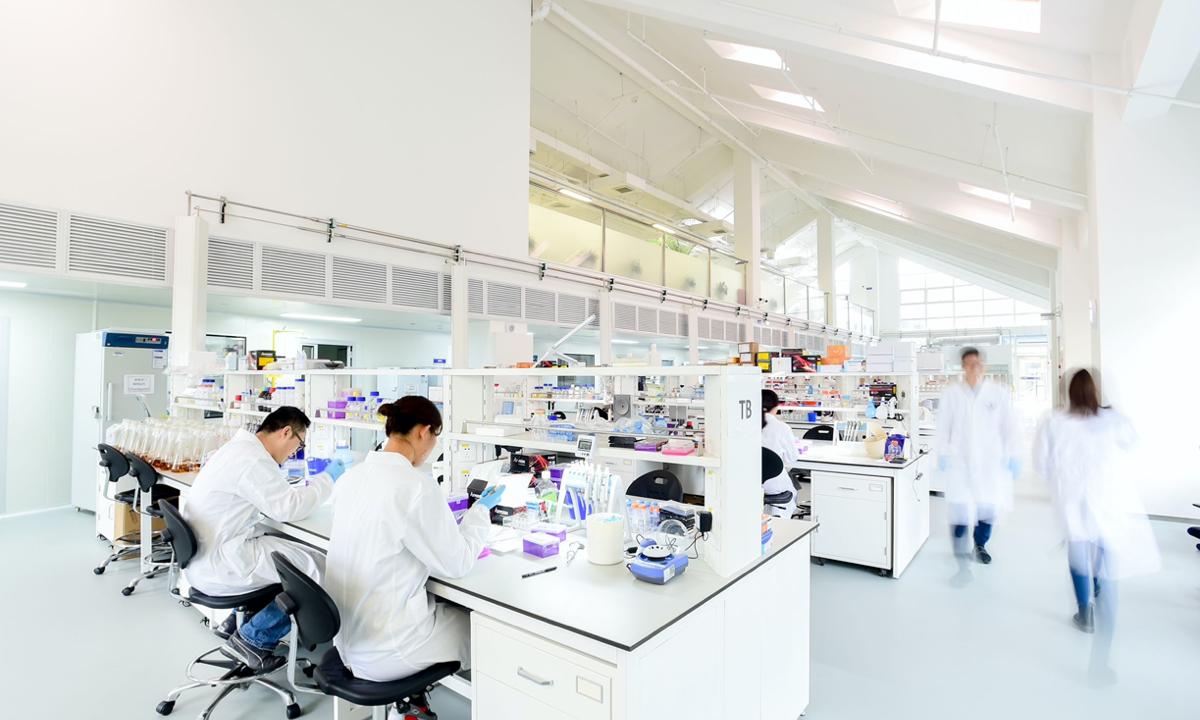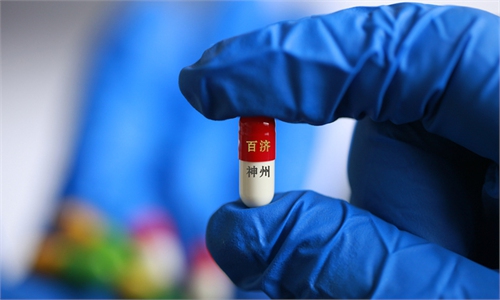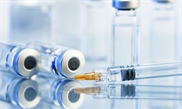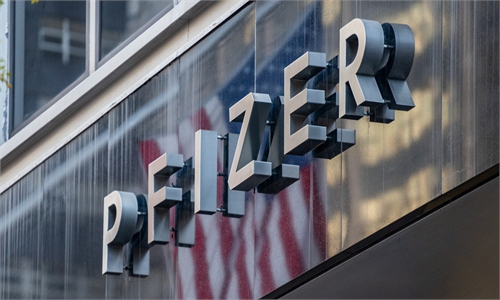Clinical trials for two COVID-19 small molecule drugs to kick off this year: Chinese scientist

Photo:Ccourtesy of GHDDI
Global Health Drug Discovery Institute (GHDDI) is expected to start clinical trials for two COVID-19 candidate drugs this year as Omicron strikes Chinese cities, making it more urgent to create effective and convenient oral treatments to better tackle the variant.
One of the candidates is GDI-4405 that targets the same 3CL protease of SARS-CoV-2 with Pfizers Nirmatrelvir, the active compound in the approved Paxlovid, which recently received conditional approval for sales in the Chinese market.
Ding Sheng, Institute Director of GHDDI and Dean of the School of Pharmaceutical Sciences at Tsinghua University, recently told the Global Times in an exclusive interview that the research team led by him at the Institute is accelerating preparations for manufacturing and applying for clinical trials on GDI-4405.

Ding Sheng Photo:Ccourtesy of GHDDI
We are expecting the application to be submitted in the second half of the year in China and the US and the clinical trials would roll out right after that, Ding said.
The 3CL, an enzyme which breaks down proteins and peptides, is the main protease of COVID-19 necessary for the replication of the virus. It is an excellent antiviral drug target. Pfizers Paxlovid, the only highly effective and approved COVID-19 novel oral small molecule drug so far, also targets the 3CL protease.
According to Ding, his team designed and identified the same chemical compound as in Paxlovid, which they named GDI-3549, in 2020.
But the current candidate, GDI-4405, has shown in multiple experiments a more potent inhibition of SARS-CoV-2 replication with good bioavailability and safety profile, which positions it to be a better potential specific drug for the treatment and prevention of the continuously evolving COVID-19, GHDDI said.
Ding said the candidates efficacy would not be affected by SARS-CoV-2 mutations as the main target protease of the virus has not shown any mutation that would affect its inhibition by the drug compound.
Another candidate developed by the team led by Ding is an inhaled broad spectrum anti-viral small molecule. Studies on healthy volunteers in Australia are expected to kick off in late March or April this year.
GDI-4405 targets the virus protease to prevent it from replicating, while the inhaled compound interacts with the human cell immune receptor, stimulating appropriate human cells to produce effective immune proteins to tackle the virus, Ding explained.
The inhalation candidate would directly activate immunity in the upper respiratory tract of treated individuals and can avoid some severe side effects like cytokine storm.
Inhalation is also a method expected by many experts to be used to inoculate the population in the future. Current COVID-19 vaccines can prevent deaths and reduce the severity of the illness, but they can hardly prevent infections. An inhaled vaccine could be more effective, which can generate protective antibodies in the upper respiratory tract, which is the path to prevent the virus from entering our bodies, and could prevent infection and transmission, experts reached by the Global Times said.
Chinese vaccine producer CanSinoBIO and researchers from the Institute of Military Medicine under the Academy of Military Sciences, led by Chen Wei, jointly developed China's first inhaled vaccine which many experts see as a promising candidate as booster shots for inactivated vaccines.
Many Chinese cities like Shanghai and Shenzhen have suspended public transportation and locked down communities due to recent outbreaks caused by the Omicron variant.
Some Chinese netizens have been wondering whether the outbreaks caused by Omicron would be less severe than previous waves of Delta as data of the new cases on the mainland, as well as from cases in Hong Kong, showed that the variant is milder and causes less severe cases and deaths.
However, Ding warned that the very high contagiousness of Omicron indicates that, once a major outbreak occurs, the variant could infect a large population in a short period of time, which would bring about a severe burden to the countrys medical system.
Experts like Shanghai-based Zhang Wenhong also warned that it is not time for China to relax strict anti-epidemic measures before society is fully ready for the strike of the virus. Otherwise, irreparable damage would be inflicted.
Ding agrees that more accessible effective vaccines and drugs should be major preconditions before China lets its guard down and reopens. He explained that vaccination is very important in building herd immunity to protect the population from infection, while drugs would serve as a supplementary to prevent infected individuals from progressing into severe disease or curb transmission of the virus.
China has approved seven COVID-19 vaccines for use so far. The country also approved in December 2021 the sales of its first home-developed anti-COVID-19 medication using antibody cocktail therapy.
The Global Times learned that major Chinese vaccines manufacturers like Sinopharm and Sinovac have ramped up research and development on upgraded vaccines. Researchers and biomedical companies are also accelerating R&D on drugs through various techniques.
Based in Beijing, GHDDI was jointly founded by the Bill and Melinda Gates Foundation, Tsinghua University and Beijing Municipal Government in 2016.



